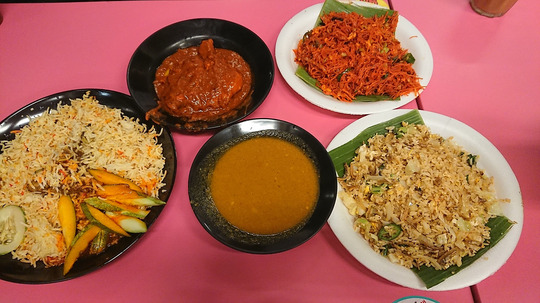
Report: NTU (Singapore) - UTokyo Joint Winter Workshop LUONG Anh Nguyet
- Time and Date
- December 12 - 13, 2019
- Venue
- Nanyang Technological University, Singapore
- Organized by
-
Educational Project S, Integrated Human Sciences Program for Cultural Diversity (IHS), the University of Tokyo
The College of Humanities and Social Sciences at the Nanyang Technological University, Singapore (NTU)
Our group of five students from the University of Tokyo was warmly welcome by the School of Social Sciences, Nanyang Technological University. The winter workshop took place on December 12 and 13, entitled "Translating Multiculturalism: Pedagogy, Identity and Politics for Multicultural Coexistence".
On the first day's morning, we had two opening remarks by Professor Sonoda Shigeto (UTokyo) and Assistant Professor Zhan Shaohua (NTU) to kick-off the workshop. Then, we listened to a lecture by Prof. Wee Wan-Ling (NTU) on the implication of East Asian pop music on Asian multiculturalism. He took example from J-pop which emerged as a soft power and was consumed by the rising middle class especially in Southeast Asia. Prof Wee's well-articulated lecture opened further curiosity on how East Asian pop music has resulted in cultural re-evaluation and re-appreciation that went beyond the postwar, post-colonial legacies.
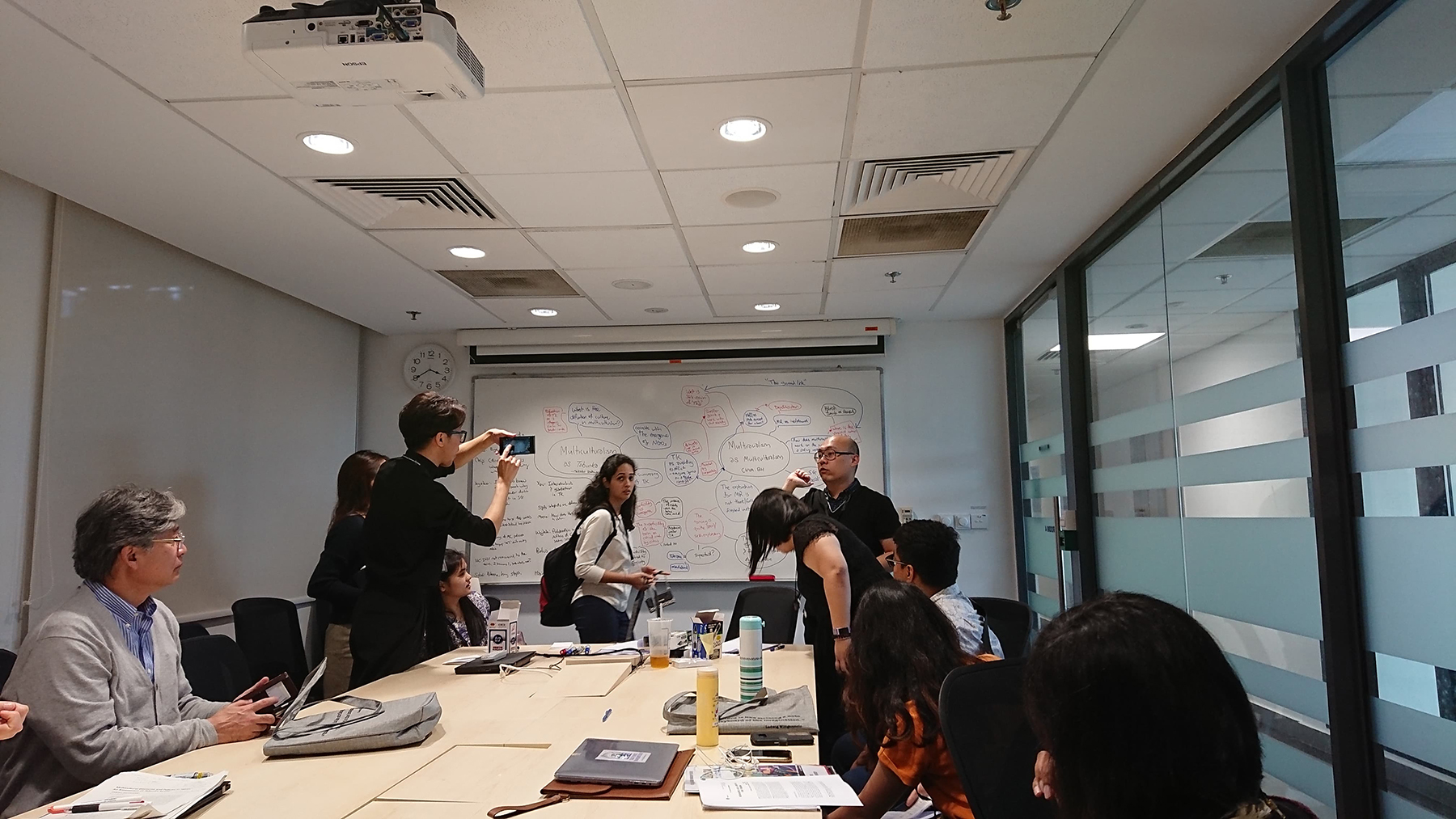
In the afternoon, the workshop continued with a critical reading session – a popular academic activity in NTU. The reading session divided participants into small groups of 3-4 students to read two seminal articles on Japanese and Singaporean multicultural coexistence. After that, all participants were joined together in a roundtable style, sharing their groups' ideas to the rest. Chua Beng Huat's article examined the enforcement of "a multiculturalist/multiracial Singapore" policy by hegemonic People's Action Party to ensure public order and social stability, while Chikako Kashiwazaki's article traced back history to investigate the emergence of tabunka kyōsei (多文化共生) - the Japanese equivalent of multiculturalism. In the end, we came to the agreement that both countries have unique version of multiculturalism: a fixed and rigid concept in Singapore and a vaguely defined concept in Japan. At the same time, there was certain difference between both government's definition of multiculturalism in policies and actual implementations as well as interpretation at locality. While it was convincing to see things from governments' discursive level, the linkage between such discourse and practices on the ground was not clear in the articles. The critical reading was fruitful thanks to unique inputs from participating students who came from different backgrounds before settling in the two mentioned societies.
At the end of the first day, two invited speakers joined us: Dr. Hoh Shi Huang from Raffles Institution - a prestigious gifted school and Ms. Gwendolyn Thong who worked at Changkat Changi Secondary School - a normal secondary school friendly to handicapped students in Singapore. Despite different target students, the speakers were kind enough to share about their experiences and happiness in teaching their students not only new knowledge but also how to love and co-exist in an inclusive environment.
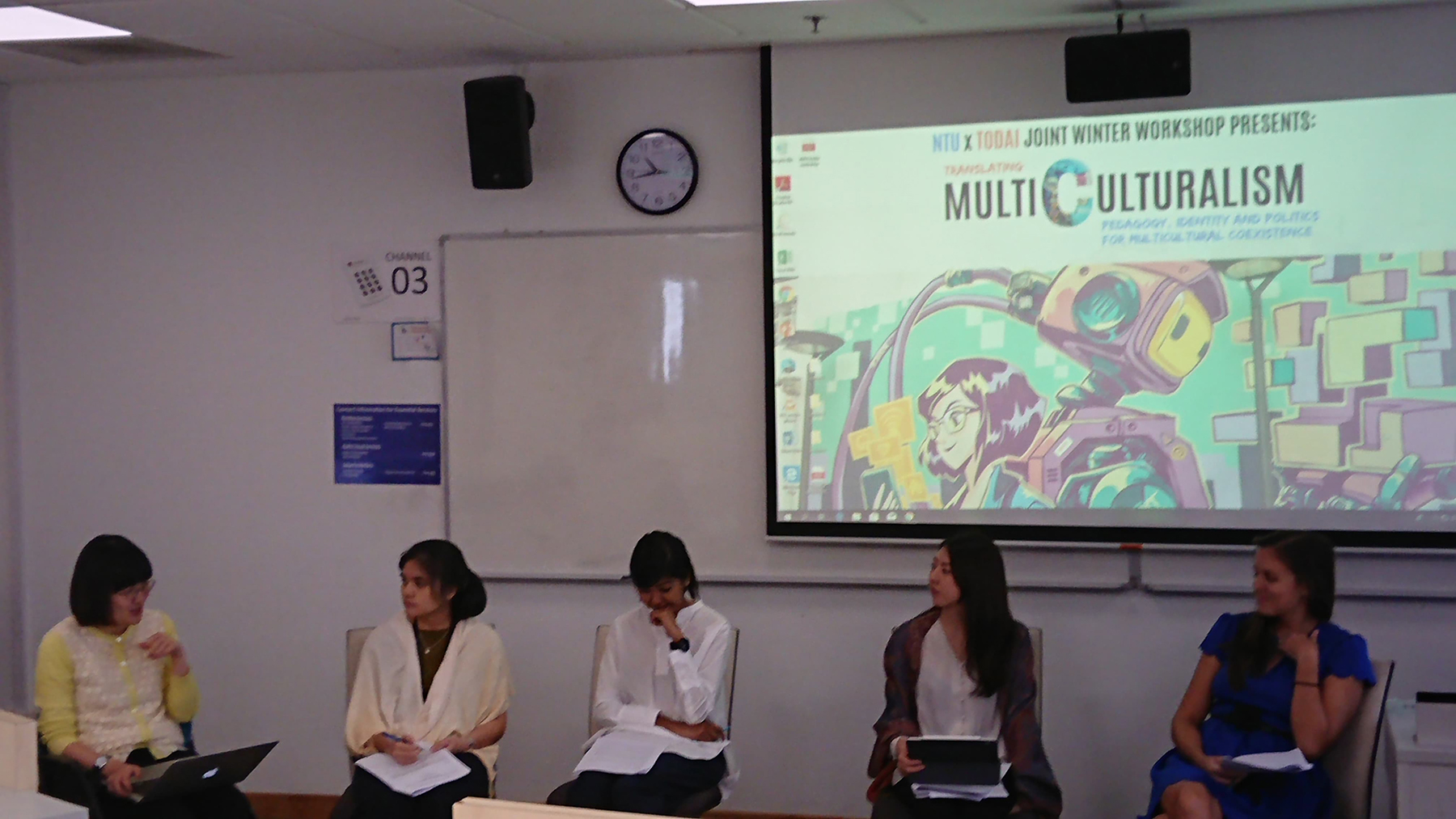
The second day was devoted to students' presentations. Our presentations were grouped into 3 sessions based on the overarching theme, each followed by discussion led by the workshop's conveners. In the first theme "Multiculturalism and Identity", four students made presentations on various forms of struggling identity in modern societies: "Likelihood of third-culture individuals who lived in Singapore to reside in Singapore again in their adulthood years" (Yasmeen Azahari, NTU), "How do you think of your name? Practice of maintenance and acculturation among ethnic Groups" (Yuki Nagae, UTokyo), "Multicultural coexistence in Cambodia: Insights from the Chinese" (Joanna Rose McFarland, NTU) and "Mosques, media and Muslims in multicultural Australia" (Wajihah Hamid, Macquarie University). In the second theme "Multiculturalism and Institutions", three presentations included "Educational utilization of digital archives: Establishing a discussion platform that supports the expansion of multicultural awareness" (Masao Oi, UTokyo), " ‘Twenty-eight years later': A cross-country analysis of development divergence and bureaucratic institutions in post-communist states" (Assel Mussaagulova, NTU); and my presentation on "Vietnamese universities in national innovation system for promoting AI research". Masao amazed us with his great media works showcasing people's perception on "peace" around the world, while Assel impressed me with her utilization of large-scale data for her research. In my presentation, I spent the latter half to point out problems of multiculturalism in IT industry, which are the elitism of multicultural education that favored intellectually or financially privileged students, the narrow scope of "multiculturalism" in curriculum, and the lack of instruments to institutionalize expats into innovation process. The last theme "Multiculturalism and Presence" featured three presentations: "Possibility of plurilingualism in theatrical culture in Asia" (Hiroko Tanabe, UTokyo), "The politics of visibility of transgender people in Singapore and Japan" (Takeuchi Kyoko, UTokyo) and "Hallyu's fetishes: A critical analysis of non-Korean Kpop idols as figures for sinocultural cosmopolitan imaginaries" (George Wong, NTU). NTU participants impressed me with their intellectual depth and eloquence as some of them were just undergraduate students at the time. The presentations which I found most intriguing are George's and Wajihah's. George took an interesting approach to the mainstream research on K-pop by bringing up Homi Bhabha's concept of mimicry and Lawrence Lek's Sinofuturism. Wajihah's dissertation touched me on portraying mosques and their spaces as socializing means and everyday rituals for Muslim community in Lakemba, which differed from the negative popular narrative.
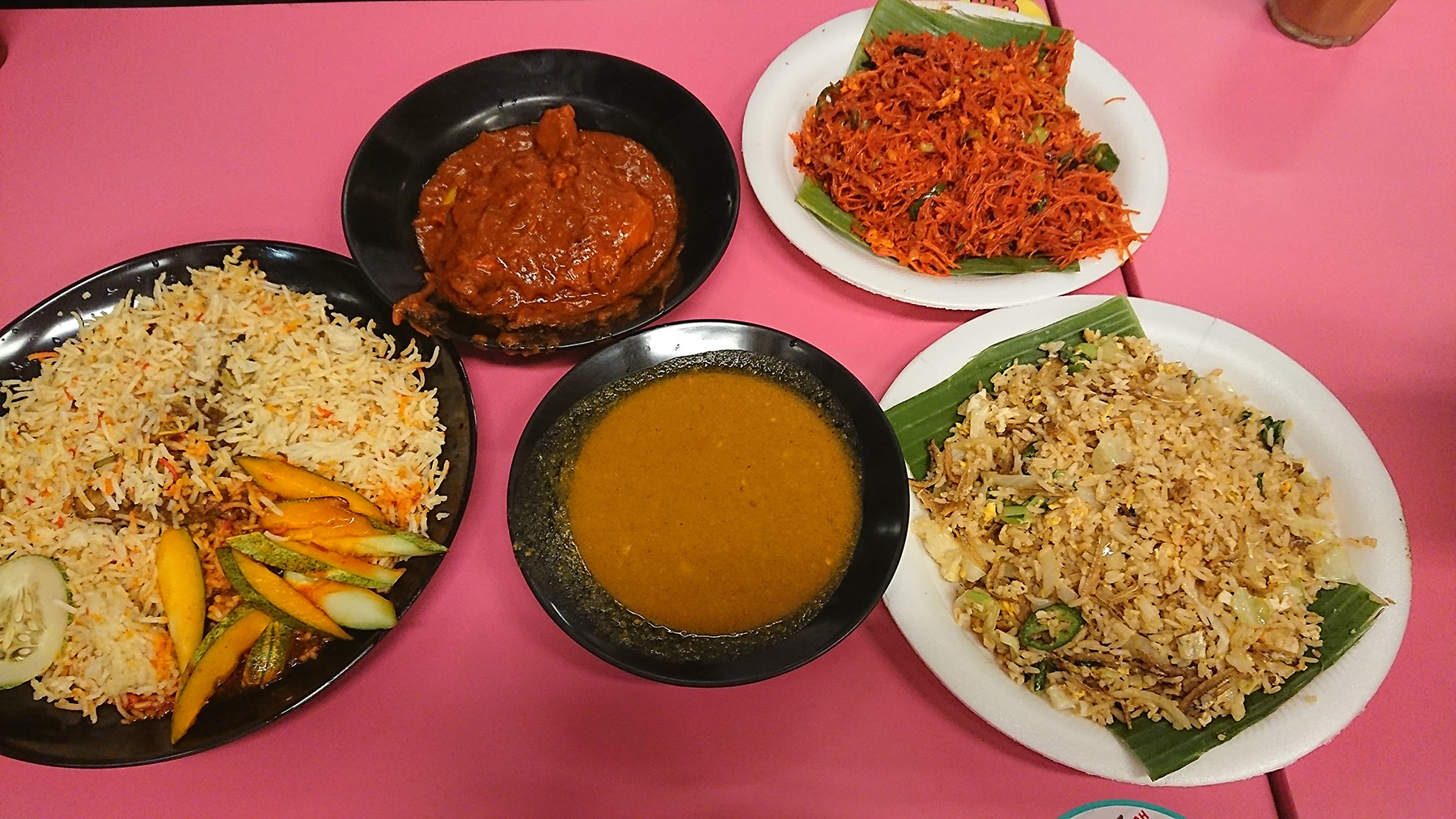
During our free time, I visited the National Museum of Singapore where a special exhibition "The Lives of Women" detailing the status of Singapore women from 1965 to future prospect was hosted. I was mesmerized to witness how Singapore women have been empowered in terms of employment, life quality, education and political representation. The permanent exhibitions in the museum also did a great job featuring the history of Singapore island in different periods of time and how groups of people came to co-exist in vivid memories and through artifacts donated by the courtesy of community.
In conclusion, the workshop was an enlightening experience for me as I was able to see multiculturalism in connection with political discourse, pedagogy and practices beyond classroom, which brought new insights for my current master thesis. It was a great honor to get to learn from academic experts, practitioners as well as fellow students. I am also grateful for IHS program and the NTU's School of Social Sciences, involved Professors as well as workshop conveners (George, Stuti, Kai Xiang from NTU and Hiroko and Lin from UTokyo) for your hard work organizing this opportunity. I am looking forward to other joint activities to return the kind hospitality in the future.
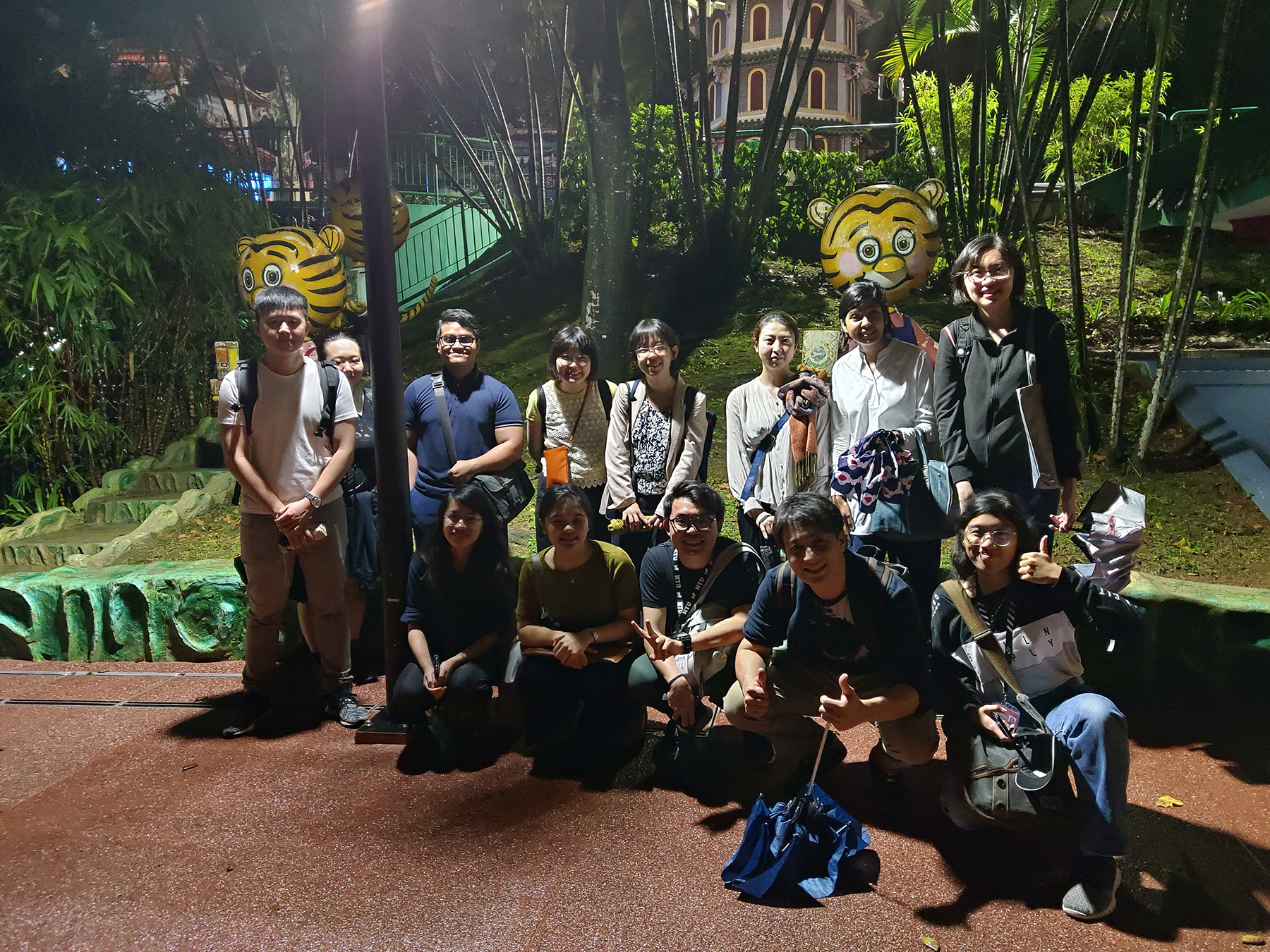
(Photo credits: Masao Oi, Hiroko Tanabe, George Wong Boon Keng)
report date : Dec 23 2019
